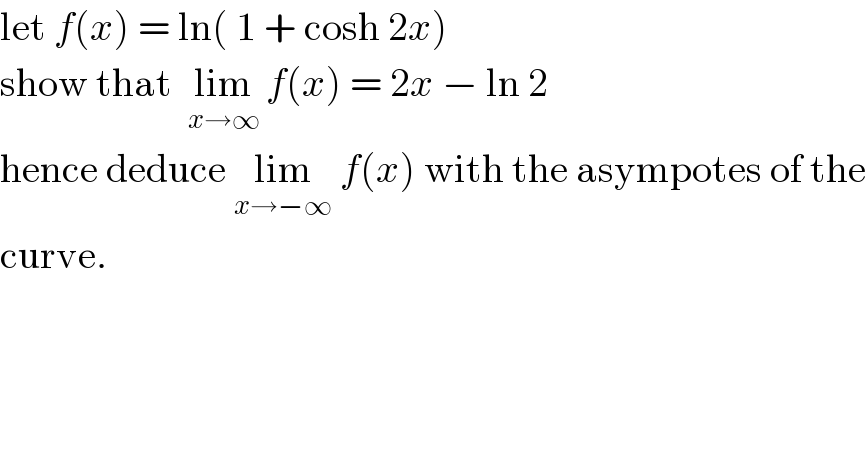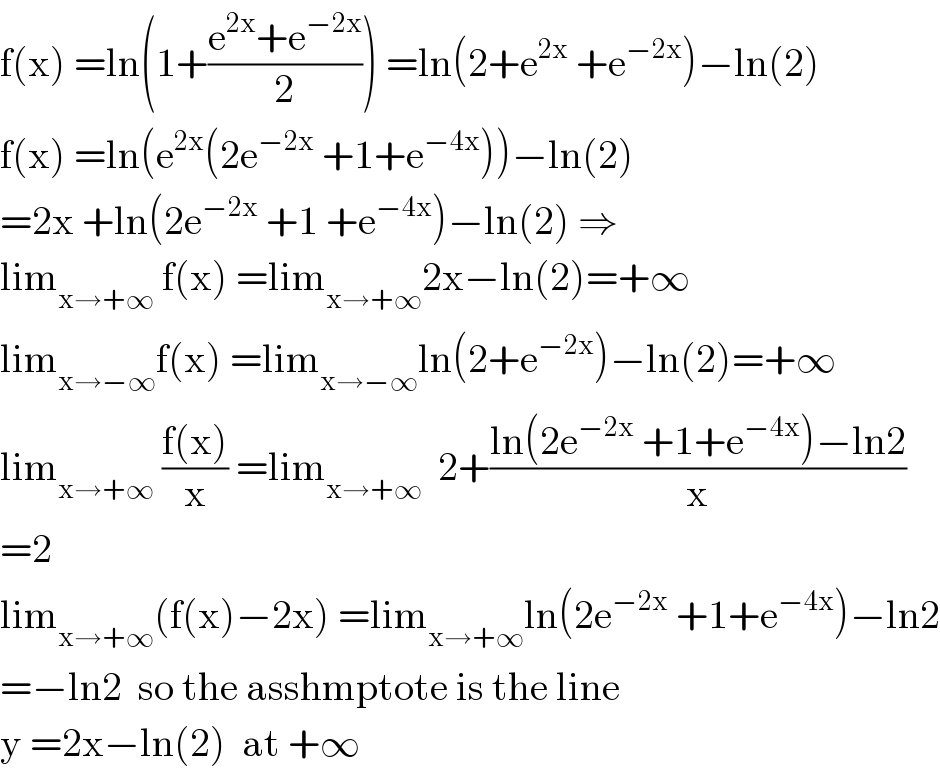
Question and Answers Forum
Question Number 98309 by Rio Michael last updated on 12/Jun/20

Answered by abdomathmax last updated on 13/Jun/20

Commented by mathmax by abdo last updated on 13/Jun/20

Commented by Rio Michael last updated on 13/Jun/20

| ||
Question and Answers Forum | ||
Question Number 98309 by Rio Michael last updated on 12/Jun/20 | ||
 | ||
Answered by abdomathmax last updated on 13/Jun/20 | ||
 | ||
| ||
Commented by mathmax by abdo last updated on 13/Jun/20 | ||
 | ||
Commented by Rio Michael last updated on 13/Jun/20 | ||
 | ||